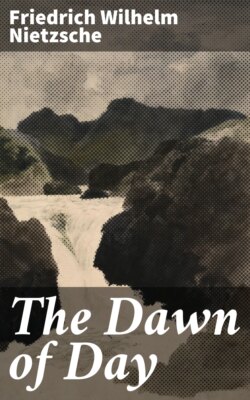Читать книгу The Dawn of Day - Friedrich Wilhelm Nietzsche - Страница 40
На сайте Литреса книга снята с продажи.
30.
ОглавлениеTable of Contents
Refined Cruelty as Virtue.—Here we have a morality which is based entirely upon our thirst for distinction—do not therefore entertain too high an opinion of it! Indeed, we may well ask what kind of an impulse it is, and what is its fundamental signification? It is sought, by our appearance, to grieve our neighbour, to arouse his envy, and to awaken his feelings of impotence and degradation; we endeavour to make him taste the bitterness of his fate by dropping a little of our honey on his tongue, and, while conferring this supposed benefit on him, looking sharply and triumphantly into his eyes.
Behold such a man, now become humble, and perfect in his humility—and seek those for whom, through his humility, he has for a long time been [pg 037] preparing a torture; for you are sure to find them! Here is another man who shows mercy towards animals, and is admired for doing so—but there are certain people on whom he wishes to vent his cruelty by this very means. Look at that great artist: the pleasure he enjoyed beforehand in conceiving the envy of the rivals he had outstripped, refused to let his powers lie dormant until he became a great man—how many bitter moments in the souls of other men has he asked for as payment for his own greatness! The nun's chastity: with what threatening eyes she looks into the faces of other women who live differently from her! what a vindictive joy shines in those eyes! The theme is short, and its variations, though they might well be innumerable, could not easily become tiresome—for it is still too paradoxical a novelty, and almost a painful one, to affirm that the morality of distinction is nothing, at bottom, but joy in refined cruelty. When I say “at bottom,” I mean here, every time in the first generation. For, when the habit of some distinguished action becomes hereditary, its root, so to speak, is not transmitted, but only its fruits (for only feelings, and not thoughts, can become hereditary): and, if we presuppose that this root is not reintroduced by education, in the second generation the joy in the cruelty is no longer felt: but only pleasure in the habit as such. This joy, however, is the first degree of the “good.”
